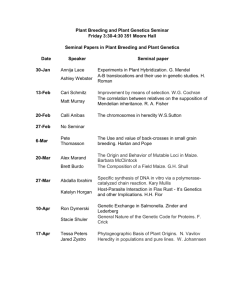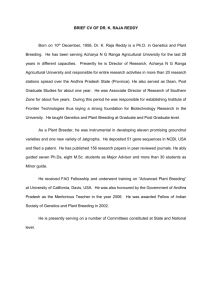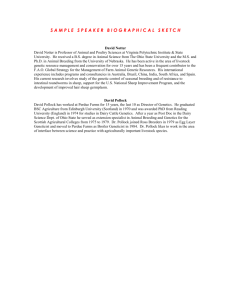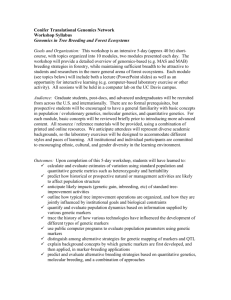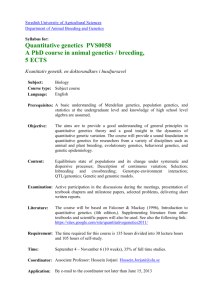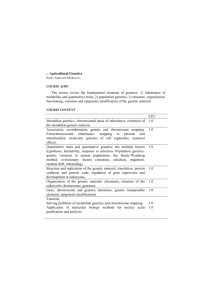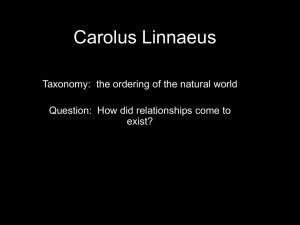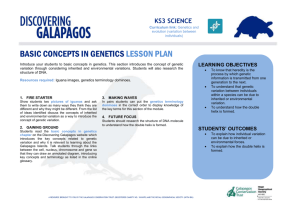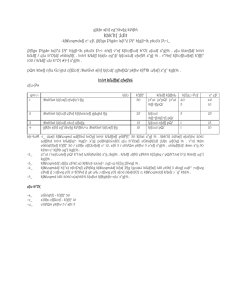Genomics and animal breeding
advertisement
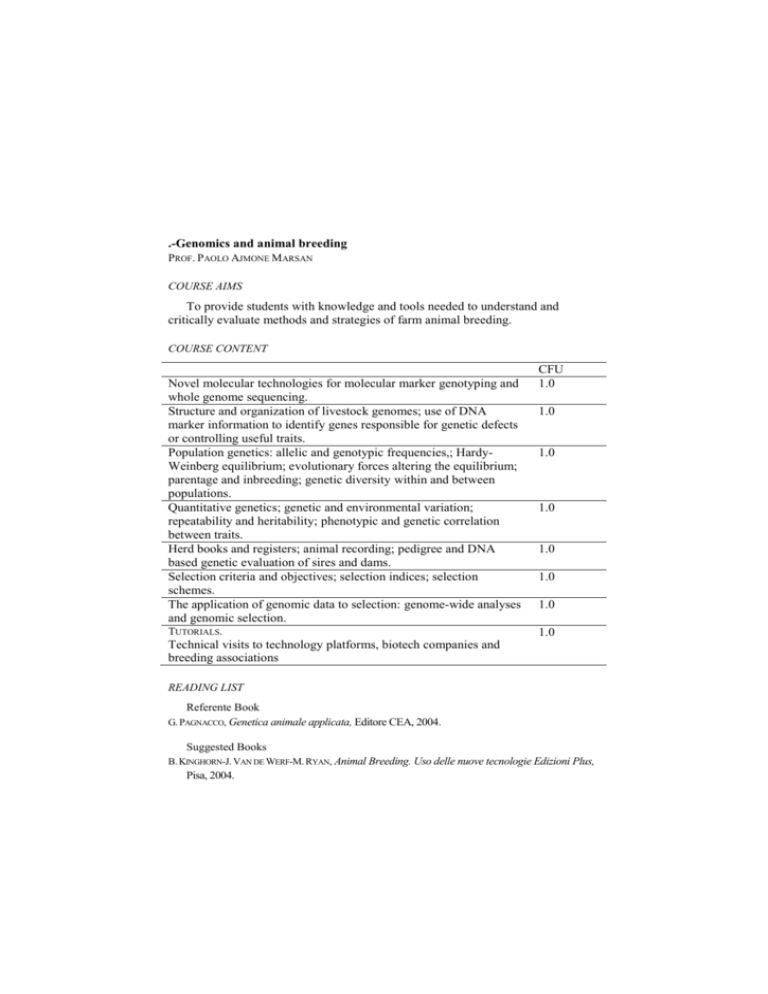
.-Genomics and animal breeding PROF. PAOLO AJMONE MARSAN COURSE AIMS To provide students with knowledge and tools needed to understand and critically evaluate methods and strategies of farm animal breeding. COURSE CONTENT Novel molecular technologies for molecular marker genotyping and whole genome sequencing. Structure and organization of livestock genomes; use of DNA marker information to identify genes responsible for genetic defects or controlling useful traits. Population genetics: allelic and genotypic frequencies,; HardyWeinberg equilibrium; evolutionary forces altering the equilibrium; parentage and inbreeding; genetic diversity within and between populations. Quantitative genetics; genetic and environmental variation; repeatability and heritability; phenotypic and genetic correlation between traits. Herd books and registers; animal recording; pedigree and DNA based genetic evaluation of sires and dams. Selection criteria and objectives; selection indices; selection schemes. The application of genomic data to selection: genome-wide analyses and genomic selection. TUTORIALS. CFU 1.0 1.0 1.0 1.0 1.0 1.0 1.0 1.0 Technical visits to technology platforms, biotech companies and breeding associations READING LIST Referente Book G. PAGNACCO, Genetica animale applicata, Editore CEA, 2004. Suggested Books B. KINGHORN-J. VAN DE WERF-M. RYAN, Animal Breeding. Uso delle nuove tecnologie Edizioni Plus, Pisa, 2004. L.D. VAN VLECK-E.J. POLLAK-E.A.B. OLTENACU, Genetica per le Scienze Animali, SEU, Servizio editoriale Universitario di Pisa, 1988. VAN VLECK-POLLACK-OLTENACU, Genetics for the Animal Sciences, Editore W H Freeman & Co., ASIN: 0716718006, 1995. F.W. NICHOLAS, Veterinary Genetics, Oxford University Press, New York, USA, 1987. D.S. FALCONER-T.S.C. MACKAY, Introduction to quantitative genetics, 4th edition, Longman Scientific & Technical, Essex, UK, 1996. A.J. CLARK, Animal breeding. Technology for the 21st Century, Overseas Publishers Association, Amsterdam, NL, 1998. F.W. NICHOLAS, Veterinary Genetics, Oxford University Press, New York, USA, 1987. TEACHING METHOD The course includes classroom lectures, group project work and presentations by outside lecturers/professionals with sector-specific expertise. ASSESSMENT METHOD Oral exam, intermediate tests and group project work presentations Needs of prior kowledge: Basic Genetics and Statistics NOTES Prof. Ajmone Marsan receives students at the Institute of Zootechnics after lectures.
